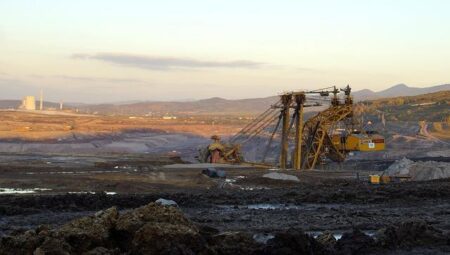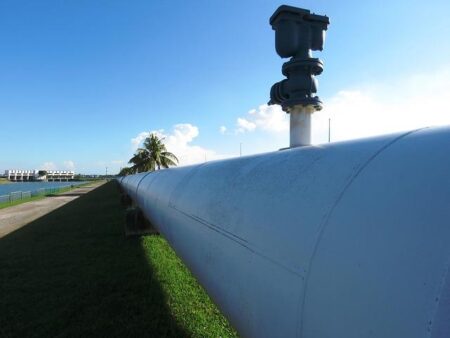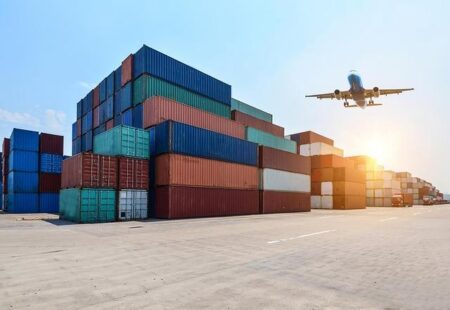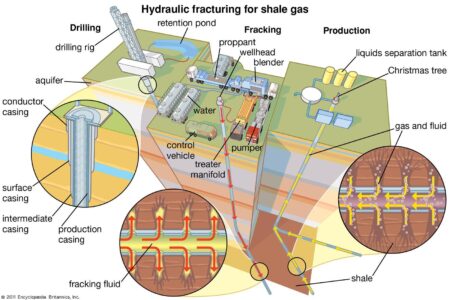Australian ministers held 20 dynamic meetings with Japanese gas companies, highlighting a surge of intense lobbying from the fossil fuel industry. These high-profile interactions put the government’s commitment to climate goals under a sharp spotlight
Browsing: fossil fuels
If Australia and Indonesia team up to stop new thermal coal mines, they could unleash a powerful wave driving the global green revolution. This daring move would signal a historic shift in energy strategies, fueling a surge of investment in innovative renewable technologies
Brazil’s oil and gas production skyrocketed to an unprecedented peak in 2025, driven by innovative offshore projects and a surge of fresh investments. This extraordinary expansion cements Brazil’s status as a dominant force in the global energy landscape
China’s 2026 energy strategy is powered by five exciting trends: a swift surge in renewable energy adoption, a bold increase in domestic crude production, an expansion of LNG imports, breakthroughs in cutting-edge energy technologies, and the strengthening of global oil partnerships
France and Germany have found themselves in the spotlight once more due to their energy ties with Russia, as tensions continue to rise. Critics warn that relying on Putin’s resources risks repeating past errors, fueling new concerns over Europe’s energy security
#Encore: U.S.-owned oil sands companies are steadily funneling their profits abroad, fueling rising concern among Canadians who are passionately backing resource sovereignty and determined to keep the nation’s energy wealth right here at home
Argentina wraps up a groundbreaking year in oil production and energy surplus, driven by the explosive growth of the Vaca Muerta shale formation. This remarkable surge not only strengthens the nation’s energy independence but also opens the door to thrilling new export opportunities, officials reveal
The U.K. finds itself at a crucial crossroads, urgently seeking ways to boost domestic gas production amid soaring energy prices and growing supply concerns. Experts are diving deep into the debate, weighing the potential for enhanced energy security against environmental risks, sparking fierce policy battles
Global coal exports took an unexpected dip in 2025, driven primarily by a steep drop in China’s imports, Reuters reveals. This dramatic shift marks a pivotal moment in the coal market, reflecting changing energy demands and transformative policy decisions
Germany is gearing up to invite bids for new gas-fired power plants this March, taking a bold step to boost energy security amid ongoing market turbulence, a government minister revealed to Bloomberg
Canada’s oil sands are roaring back to life as U.S. shale production hits a plateau. Surging demand and soaring prices are fueling fresh investments, marking a powerful shift in the landscape of North American energy
Germany has dramatically scaled back its planned expansion of gas-fired power plants in a bold move toward decarbonisation, Reuters reports. This strategic pivot aims to perfectly balance energy security with ambitious climate goals, all while investments in clean energy continue to soar
Despite China’s bold push for green energy, coal still reigns as the dominant power source, exposing the complex and challenging reality behind its renewable ambitions. The nation’s “green revolution” remains tightly linked to fossil fuels, highlighting a delicate balance between progress and tradition
Former President Trump’s ambitious push to ramp up fossil fuel production is igniting intense battles with climate advocates, fueling a heated debate over America’s energy future as policymakers struggle to find the right balance between environmental protection and economic growth
Exclusive: The EU is set to slash its reliance on Russian gas in just one year, US energy chief Jennifer Granholm told Reuters, highlighting a swift and remarkable shift as Europe accelerates its drive toward energy diversification
YPF CEO announced a deliberate slowdown in drilling at Argentina’s Vaca Muerta shale, citing tough market conditions and soaring costs. This cautious approach highlights the company’s strategic response to the unpredictable global energy landscape
Adani pledged billions in economic benefits from its Carmichael mine, but to date, it hasn’t paid a single cent in Australian taxes. This raises urgent questions about tax exemptions, corporate structures, and the effectiveness of government oversight
Italy’s Supreme Court has dealt a stunning blow to oil giant ENI, marking a major triumph for environmental advocates. This groundbreaking ruling underscores the growing call for corporations to take serious responsibility in safeguarding both people and the planet, Greenpeace reports
Calls are intensifying for a swift investigation into the lobbying activities of a prominent fracking advocate tied to a major gas company, raising urgent questions about transparency and potential conflicts of interest
Ahead of the UN climate talks, Brazil is rapidly accelerating oil drilling and highway projects in the Amazon, igniting worldwide concern over escalating deforestation and the devastating impact on the planet’s largest rainforest




















